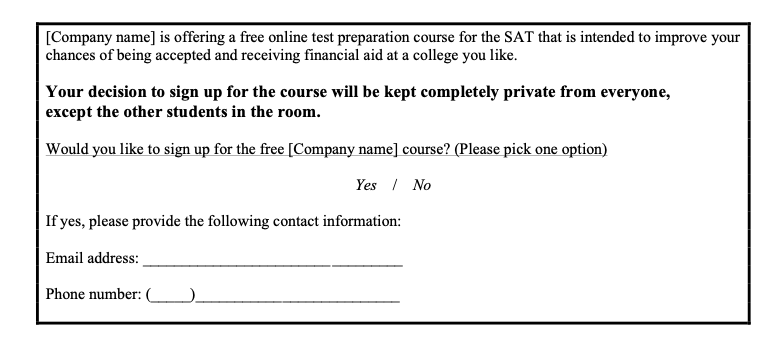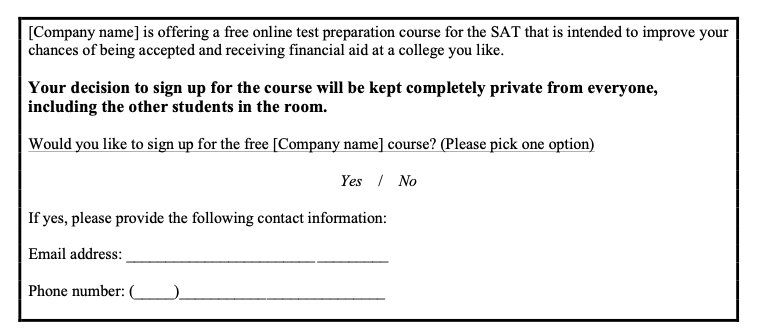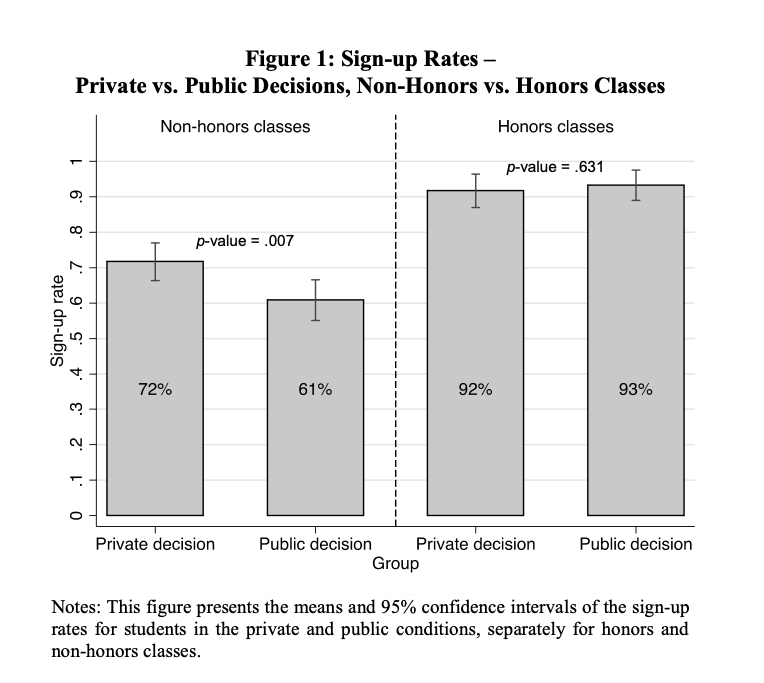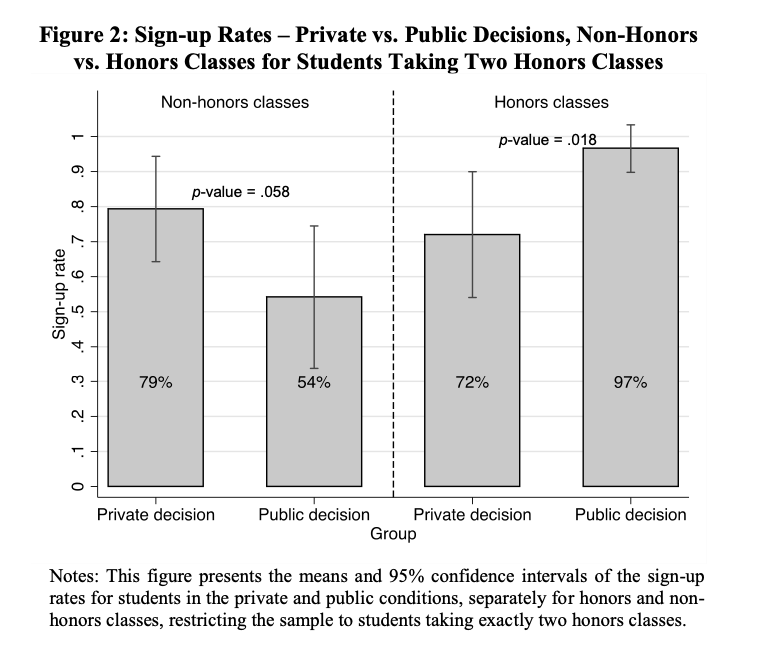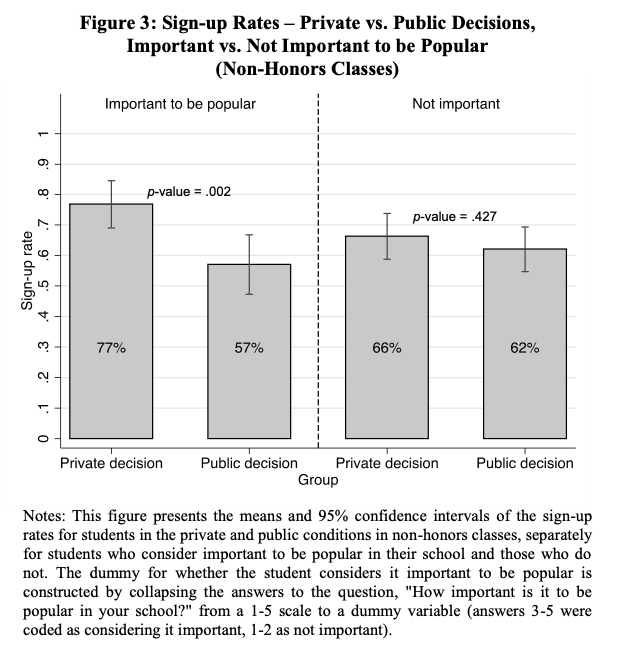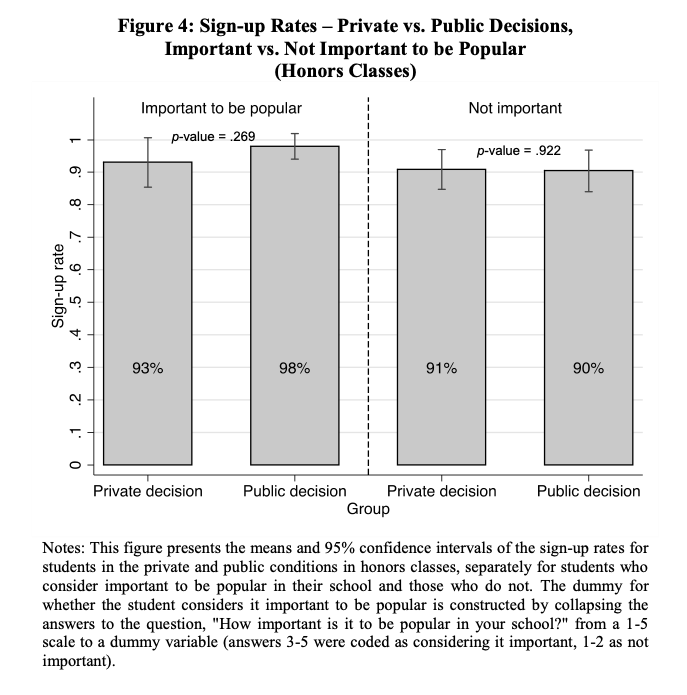В ходе дискуссии в чате Общение о разнице между специализированными и неспециализированными школами в рамках олимпиадной подготовке появился аргумент о важности среды. Предлагаю ознакомиться с одним интересным экономическим исследованием:
We present results from a field experiment designed to measure the effects of peer pressure in a way that overcomes these challenges. In four low-performing, low-income Los Angeles high schools, we offered 11th grade students complimentary access to an online SAT preparatory course from a well-known test preparation company. Across students within classrooms, we randomly varied whether the sign up sheet emphasized that the decision to enroll would be kept private from the other students in the classroom. In particular, students were either told that their decision to enroll would be kept completely private from everyone including the other students in the room, or except those students. Notably, the sole difference between sign up forms in our “private” and “public” treatments was the single word (“including” vs. “except”).
complimentary access – предлагается бесплатная подписка на платный ресурс. Если кто не знает, SAT – экзамен, необходимый для поступления в вузы США. Чем лучше у вас результат – тем больше у вас шансов поступить в хороший вуз. По сути ученикам предоставляется бесплатная путевка в жизнь.
Ученики делились случайным образом на две когорты. Одним предлагалось заполнить такую бумажку (public choice):
А другим такую (private choice): (обратите внимание – разница буквально в одном слове)
Результаты подсчитывались отдельно для тех студентов, кто в основном берет honors classes (углубленное изучение предмета) и тех, кто преимущественно берет non-honors.
We chose both honors/Advanced Placement classes and regular classes (hereafter “honors” and “non-honors”) for the experiment. The online prep class is an educational investment, and making it observable to peers could carry different social costs or benefits in settings where the norms on the acceptability of effort differ, such as in honors and non-honors classes.6 Such differences in norms could arise for example in the context of the models of social interactions found in Austen-Smith and Fryer (2005) and Fryer (2007). If students face a tension between investments in activities rewarded by the labor market and signaling loyalty or value to a peer group, one possible equilibrium involves sorting wherein higher ability individuals invest in the labor market oriented activities rather than those likely to increase acceptance by the group, and lower ability individuals choose the reverse. As a result of this sorting, there may then be social penalties to observable investments for students in non-honors classes, but not in honors classes.
Иными словами, в окружении тех, кто берет стандартные предметы прилагать особые усилия к учебе не очень «престижно». Ты ботан/задрот. В окружении тех, кто берет honors – ты адекватный и рациональный человек, который думает о своем будущем. А теперь результаты:
А теперь приготовьтесь, будут результаты. Остановитесь и подумайте – как будет отличаться signup rate при public и private choice среди а) тех, кто берет non-honors и б) тех, кто берет honors?
Разница блин в 10%! Но даже с private decision, процент людей, кто записывается на курс на 20% меньше, чем в более хорошем окружении.
А теперь посмотрим на поведение учеников, которые берут два honors класса и посмотрим как они отвечают в зависимости от того когда их спрашивают: во время стандартного класса или во время honors (спрашивали разных учеников).
Ну и еще пару интересных графиков:
